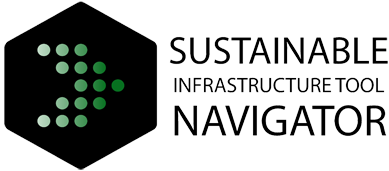CEEQUAL Projects and Term Contracts
Organization
Type(s) of Tool
Sector(s)
Lifecycle Phase(s)
Open Source
Language Availability
Country of Origin
Date of Development
Version
Description
CEEQUAL Projects assists in delivering improved sustainability performance and strategy of infrastructure projects. Projects are assessed across a range of management, environmental and social criteria, using the CEEQUAL Online Assessment Tool. The individual version for Term Contracts has been specifically created for the sustainability assessment of civil engineering and public realm works that are undertaken through contracts over several years, offering two question sets, one for maintenance works and one for new works. Assessments are conducted by CEEQUAL-trained assessors and verified by CEEQUAL-appointed external verifiers (in case of Term Contracts in the first and penultimate years including yearly surveillance visits).
Tool Outcome
The CEEQUAL assessment results in a percentage score and a CEEQUAL award certificate demonstrating the level of achievement (Pass – Good – Very Good – Excellent – Outstanding). The performance assessment can be used to influence decision making toward sustainable practices. Furthermore, CEEQUAL can be used as an international benchmark for infrastructure sustainability to compare projects across markets and regions.
For CEEQUAL for Term Contracts, there are two types of certification available: (1) to recognize the achievements of the whole contract team and (2) to recognize the achievements the delivery team only. The performance assessment can be used to influence decision making of contract teams toward enhanced sustainability.
Sustainability Criteria
The tool’s assessment criteria focus on either contract management or on delivery on the ground, both including diverse sustainability criteria, such as (non-exclusive list):
– Project strategies
– Project management
– People & communities
– Land use & landscape
– Historic environment
– Ecology & biodiversity
– Water environment
– Physical resource use
– Carbon emissions
– Resilience
– Circular economy performance


